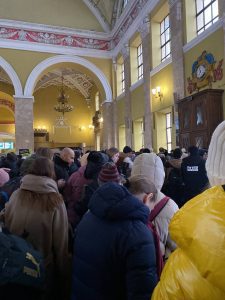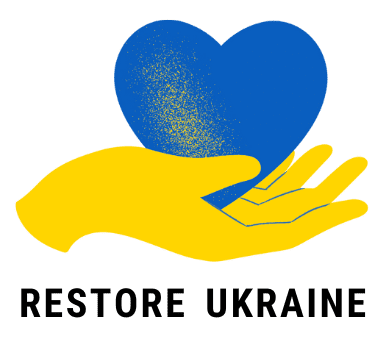Enduring Education During the War: What It Looks Like to Be a Ukrainian Student

The coronavirus pandemic that swept the world in 2020 forced universities to shift their students to distance learning. Difficulties with curriculum, reduced discipline, the need to change the daily routine, and social isolation did not go unnoticed for young people. Only after some time, when universities began to offer a usual offline education, Russia invaded Ukraine. Once again, Ukrainian students found themselves in similar conditions as during the pandemic, but this time even worse. Apart from social isolation, they feared for their lives, safety of their families, and future of their homeland.
“On February 24, there were about 2,000 students in the dormitories of our university. We have organized a humanitarian hub to provide young people with food, personal hygiene products, and medicines. This way, we minimized their travel time around the city, which was under constant shelling,” recalls Oleksiy, the Provost of the National Law University in Kharkiv.
During the first days of the war, students from the front-line cities sought refuge from the constant shellings in any basements. Someone could get to a safe place on their own, others were waiting for organized mass evacuation from the city. Nevertheless, even after coming to safer regions of the country, students couldn’t feel protected there. They had no firm foundation for the future. What will be tomorrow? How to keep studying? How to minimize my risks? Up to this point, the students still struggle to find the answers.

In Fall, the universities managed to reestablish distance learning and restart the semester. As usual, the new academic year in Ukraine started in September. However, the universities are still hesitant to request students to come back to classroom settings. “Though currently the bombing is not that frequent, Kharkiv is still periodically being under air raid attacks, like other Ukrainian cities. Our enemy is trying to destroy all the energy infrastructure, mocking Ukrainian citizens. Once again, we find problems with electricity, water, and heating. In such conditions, we are not calling students to return from safer places,” the Provost sums up.
The line of challenges that Ukrainians still need to overcome is not over yet. But we want to believe that the end to torturing is very close, and the young generation of Ukrainians will not become “The Lost Generation.”
Snizhana Letyuk, journalist for the Restore Ukraine
Your Donations Are Hard At Work!
collected since February 2022
lbs. of hygiene products delivered
lbs. of construction materials allocated
apartments rebuilt
lbs. of food distributed
Numbers are lifetime stats, updated April 1, 2023.*
